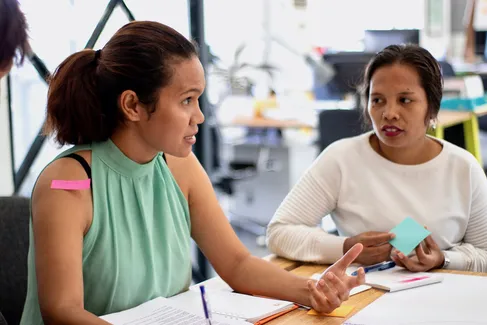Strengthening legal support systems for GBV survivors
Better case management, better outcomes for people
Timor-Leste
Purpose
To support access to justice for women and children through stronger legal aid
Approach
A secure, co-designed system for managing cases, tracking follow-ups, and strengthening client care
Highlights
10,000+ legal cases tracked from intake to resolution—enabling timely, informed support
Partners
ALFeLA, The Asia Foundation
The Challenge: The System Behind the Support
In Timor-Leste, accessing justice can be a long, confusing, and emotionally exhausting journey—especially for women and children experiencing violence, abuse, or discrimination. The legal process is often difficult to navigate, full of delays, administrative hurdles, and uncertainty. For survivors, it can feel like yet another system that isn’t built for them.
That’s where organizations like ALFeLa step in. As one of Timor-Leste’s leading legal aid services for women and children, ALFeLa provides frontline support—helping clients understand their rights, navigate the legal system, and pursue justice safely. But as the demand for legal aid grew, the systems behind the scenes struggled to keep up.
Case files were managed manually, scattered across paper records and spreadsheets. Staff had no easy way to track follow-ups, log updates, or generate reports, which made it harder to ensure that every client received timely support. Important information could be misfiled or forgotten. When staff changed or offices were stretched, clients risked falling through the cracks.
For women and children already dealing with trauma, a missed follow-up isn’t just a delay—it’s a potential loss of protection, safety, or justice.
Our Approach: Co-designing digital tools that strengthen legal aid from the ground up
To support ALFeLa’s mission of providing critical legal services for women and children in Timor-Leste, we didn’t start with code—we started with people.
Through a series of human-centered design workshops, we worked closely with ALFeLa’s legal officers, managers, and community-based teams across the country. We listened deeply to their challenges: heavy administrative loads, inconsistent tracking of cases, and limited access to reliable data—especially for teams working outside of Dili.
Together, we co-designed a secure, easy-to-use digital case management system tailored to their daily realities. The platform allows legal staff to enter client case information directly, securely store documents and photos, and track cases across the entire legal process—from intake to outcome. The system is bilingual (Tetun and English) and works on both computers and smartphones, enabling legal teams in all municipalities to update and monitor cases in real time.
The tool also includes reporting dashboards, enabling staff to monitor case trends, staff caseloads, and performance, while making it easier to flag urgent follow-ups. These features not only streamline casework—they support more consistent, dignified, and timely legal assistance for the people who need it most.
Over time, the platform has become more than just a database. It’s now a core part of how ALFeLa works—shaping workflows, strengthening internal systems, and supporting their ability to deliver high-quality legal aid at scale.

“We can now store relevant client documents in the database and information on cases of gender based violence already recorded in the Penal Code. We have access to easy reporting dashboards which track staff performance, as well as reports on criminal and civil cases.”

By combining digital innovation with deep partnership, this work is more than a technology upgrade—it’s a transformation in how legal aid is delivered. ALFeLa’s team now has the tools to respond faster, follow up more consistently, and manage growing caseloads with clarity and care. As the system continues to evolve, it’s laying the foundation for more equitable, efficient, and survivor-centered justice in Timor-Leste.


